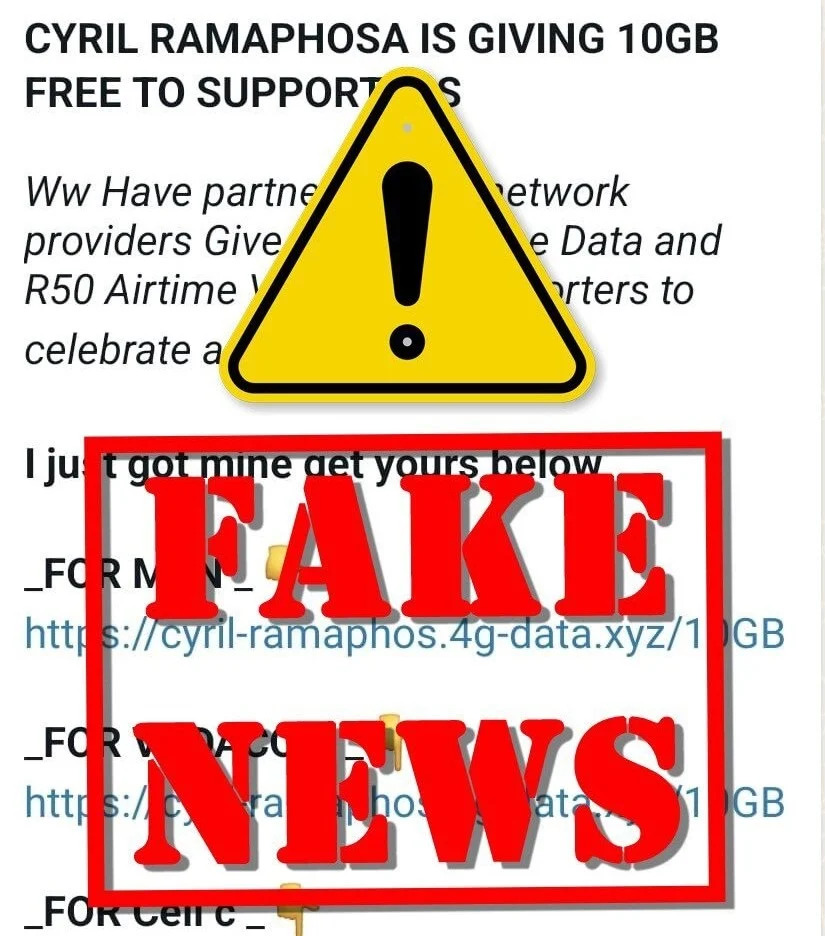- A scam has been circulating online purporting to be an offer of 10GB free mobile data and airtime directly from President Cyril Ramaphosa for his supporters.
- The website link is suspicious in nature and could be a front for a phishing operation or worse.
- The Department of Communications and Digital Technologies have said that the link is malicious and that no such data offer exists from government.
There’s no such thing as a free lunch and there’s no such thing as free data, despite messages circulating recently stating the contrary.
On Monday, the same day of President Cyril Ramaphosa’s address to the nation and on the eve of election season next year, messages began circulating online telling “supporters” to click a link and receive up to 10GB of free mobile data and R50 airtime directly from Ramaphosa himself, or rather one of his “organisations.”
Needless to say, this is not only untrue but the links attached lead to suspected malicious websites when clicked. The Department of Communications and Digital Technologies (DCDT) put out a statement this week warning people about the circulating message, which it says is misleading.

“The department would like to warn members of the public to desist from participating in sharing false information and caution against opening such links as there are fake and harmful,” it shared in the statement.
We used a few different online tools to safely investigate the link that is attached to the misleading messages. Two different URL checkers told us that the link is listed as “Suspicious” and another website which allowed us to see the scam site risk-free showed us this homepage:

As you can see someone has spent considerable amounts of time designing a page that looks somewhat official, but on closer inspection, there are clear and glaring errors that show how fake it indeed is. The first is the poor grammar used in the text of the page, including words either missing or randomly capitalised. Also the repetition of the name “Cyril Ramaphosa” and his likeness is used to sway potential victims that this is indeed a legitimate message.
The next is the “This Offer Valid for one month” call to action at the bottom of the page. Scammers will use fake time limits to get people to react quickly to scams without thinking of the potential consequences of their actions.
In this case, it is inputting your phone number below. With this information bad actors can do a whole host of illegal activities, including sending you automated phishing messages or even selling your information on black market websites.
Phishing messages are dangerous because they may seem legitimate, for example, a message directed at your own number telling you that you have received a certain amount of money to your bank account, for more information click this link. This link could then take you to another page that will ask for banking details, at which point you may have your money drained from your account if inputted.
It is important to never click a link that you do not trust, and generally consider any unexpected messages or notifications to be malicious in nature. It’s always best to be on the sure side.
“In today’s digital age, misinformation spreads rapidly and can have significant consequences. It is crucial to verify the authenticity of any information before believing or sharing it,” the DCDT adds on its official X account.

